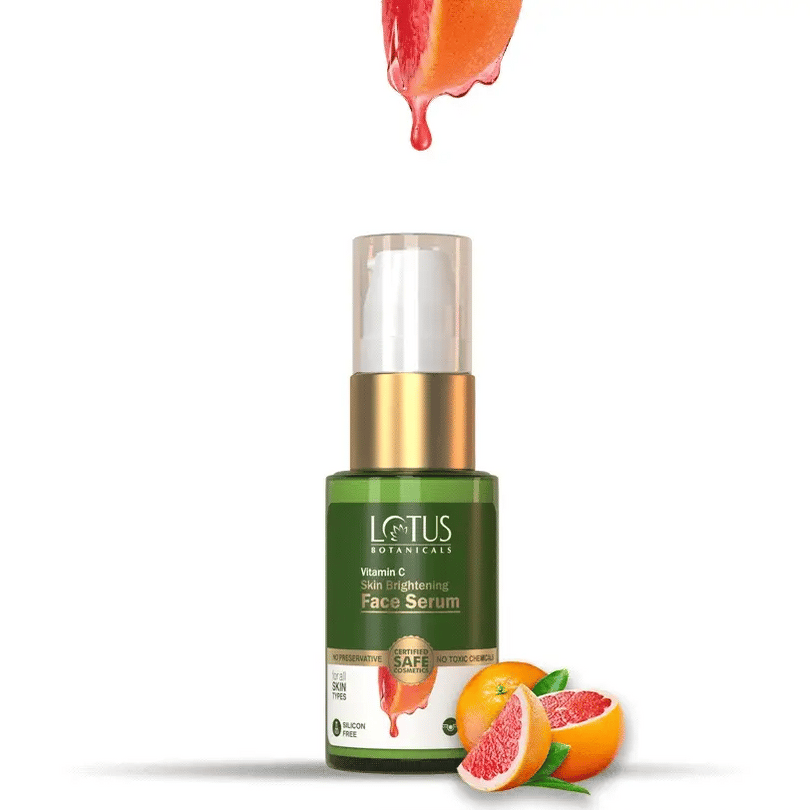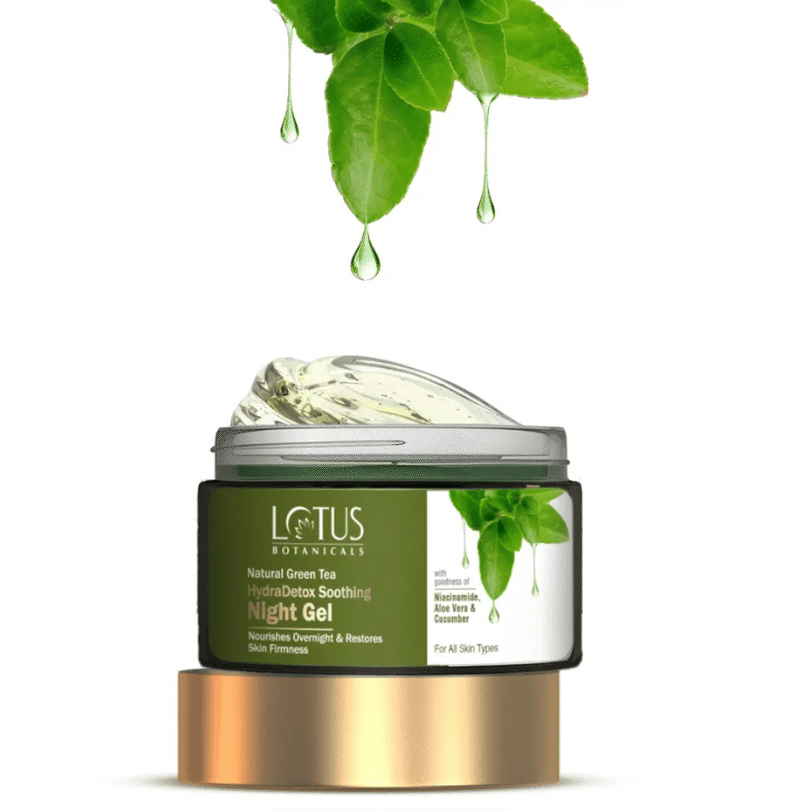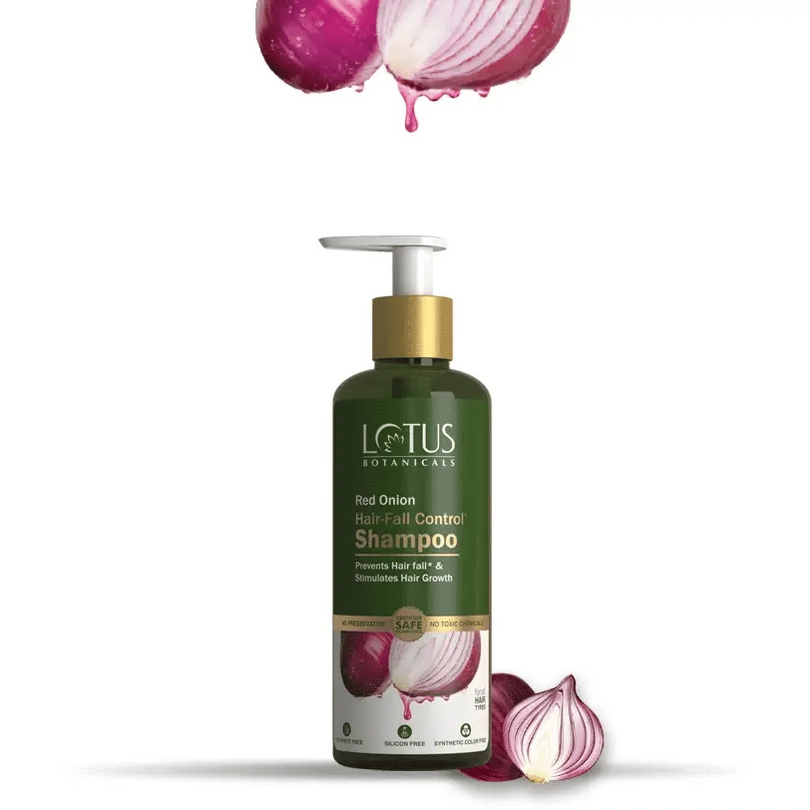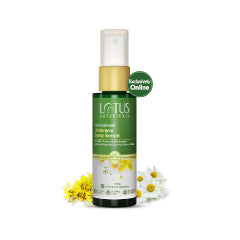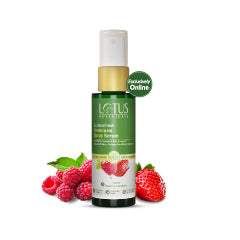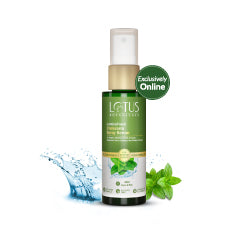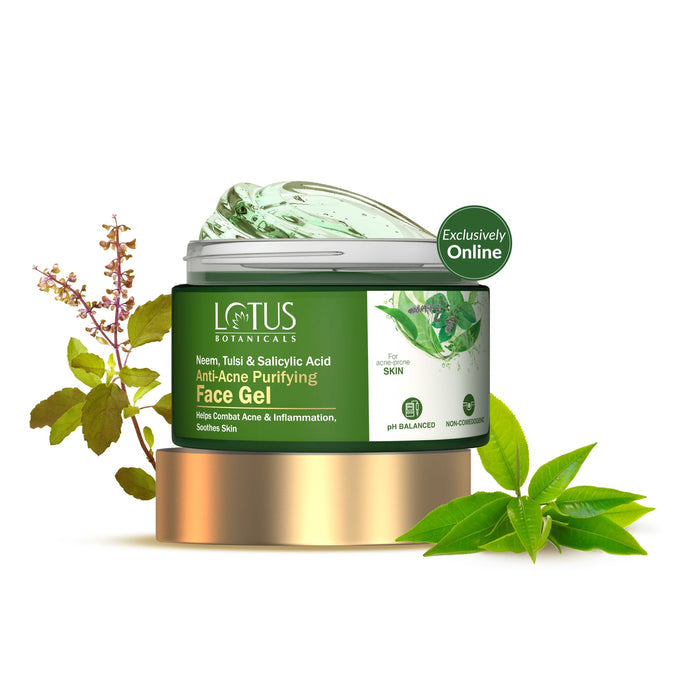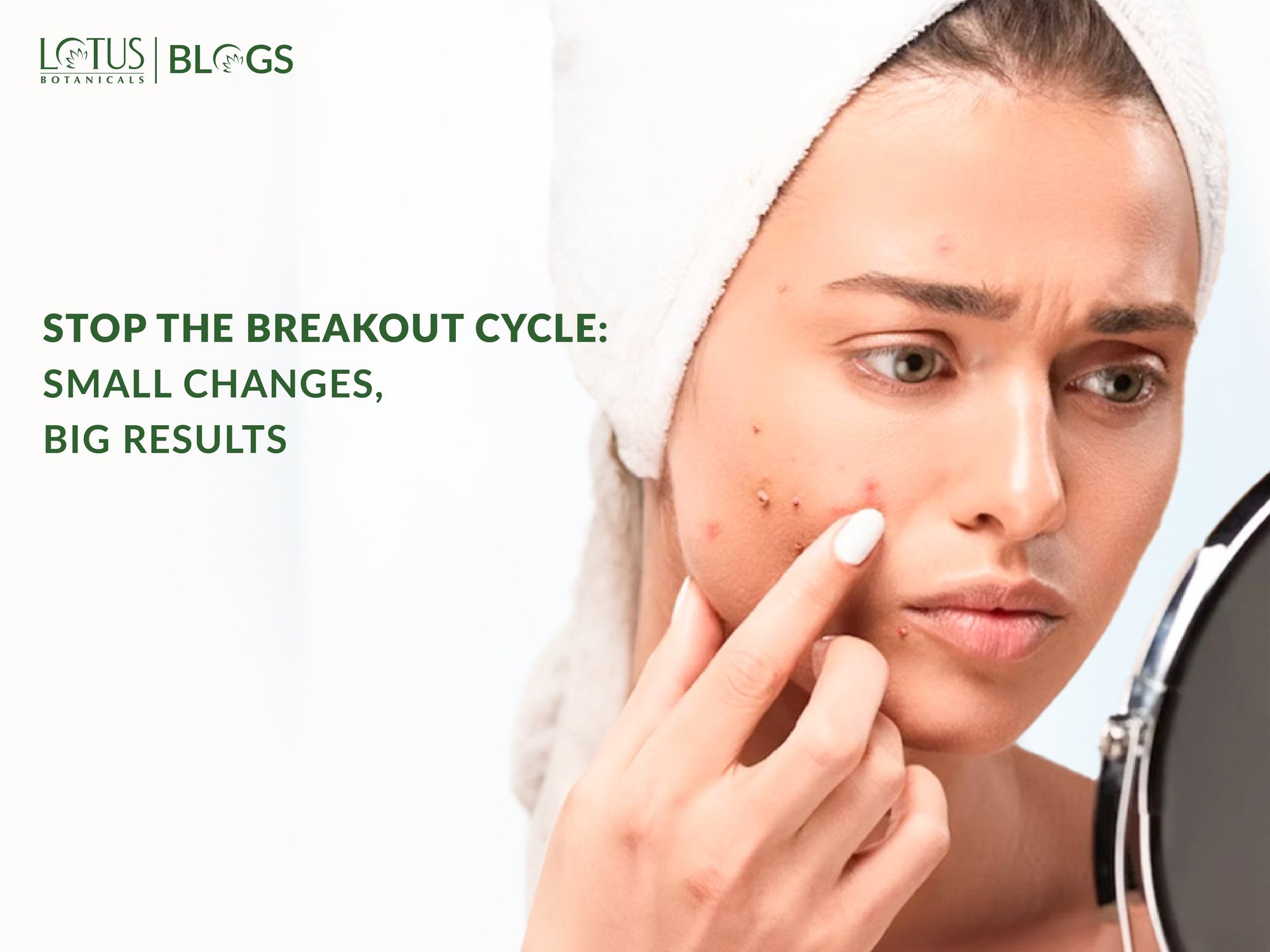
Highlights
-
Introduction to Niacinamide Serum
-
Niacinamide Serum Benefits
-
How Niacinamide Serum Works on Skin
-
Using Niacinamide Serum for Oily Skin
-
Niacinamide for Dry Skin
-
Understanding Niacinamide Serum Side Effects
-
Choosing the Right Niacinamide Serum
-
Conclusion
Introduction to Niacinamide Serum

What is Niacinamide Serum?
Niacinamide, also known as nicotinamide, is a form of vitamin B3 that plays a pivotal role in maintaining the health of our skin. In the bustling world of skincare, niacinamide serum stands out as a versatile and potent solution, aimed at addressing a wide array of skin concerns. This water-soluble vitamin is not synthesized in the body and thus must be sourced externally through diet or skincare products like serums.
A niacinamide serum typically contains a high concentration of niacinamide combined with other ingredients such as hyaluronic acid, ceramides, and various antioxidants to enhance its efficacy. Its lightweight and non-irritating formula makes it suitable for all skin types, ranging from oily to dry and sensitive skin. The serum works by helping to restore cellular energy, repair damaged DNA, and reduce the immunosuppressive effects of sun-induced UV rays.
Why It's a Buzz in Skin Care
The buzz around niacinamide serum in the skincare community is well-founded due to its multifaceted benefits. First and foremost, it is renowned for its anti-inflammatory properties which make it an excellent choice for treating acne and other inflammatory skin conditions. Niacinamide helps regulate oil production, minimizing pores and reducing breakouts significantly.
Moreover, niacinamide plays a crucial role in building keratin, a type of protein that keeps your skin firm and healthy. It also boosts the effectiveness of the skin barrier, enhances elasticity, and increases ceramide levels which hydrate the skin and prevent moisture loss. The antioxidant properties help protect against environmental stresses such as pollution, toxins, and sunlight.
- Reduction in hyperpigmentation: Studies have shown that niacinamide can reduce dark spots and hyperpigmentation by slowing down the transfer of melanosome from melanocytes to the skin cells.
- Minimizes fine lines and wrinkles: Regular use of niacinamide serum can improve skin texture and smooth out fine lines by stimulating collagen production.
- Protects against oxidative stress: Niacinamide helps build cells in the skin while also protecting them from environmental stresses like sunlight, pollution, and toxins.
Q: Can niacinamide serum be used daily?
A: Yes, niacinamide serum is gentle enough for daily use. It can be applied once or twice a day depending on your skin's tolerance and needs.
Q: Is niacinamide serum suitable for all skin types?
A: Absolutely! Niacinamide is well-tolerated by nearly all skin types including sensitive skin. However, it's always recommended to perform a patch test before starting any new skincare product.
Q: How long does it take to see results from using niacinamide serum?
A: While individual results may vary, many users report seeing noticeable improvements in their skin's appearance within 4-8 weeks of consistent use.
Niacinamide Serum Benefits

Combatting Acne with Niacinamide Serum
For many dealing with acne, finding a reliable treatment can be a frustrating journey. Niacinamide serum emerges as a beacon of hope in this context. This powerful form of vitamin B3 not only helps reduce the appearance of acne but also tackles the underlying causes such as excessive oil production and inflammation.
Niacinamide works by regulating the amount of oil that the sebaceous glands produce and preventing the overproduction that can lead to acne. It also possesses anti-inflammatory properties that soothe redness and swelling, common symptoms associated with acne outbreaks. Regular use of niacinamide serum can decrease the severity and frequency of blemishes, promoting clearer, healthier skin over time.
Moreover, this vitamin helps build cells in the skin while also protecting them from environmental stresses, such as sunlight, pollution, and toxins. This dual action of moisturizing and barrier-strengthening significantly enhances skin health, making niacinamide an excellent choice for those struggling with acne.
Improvement in Skin Texture and Tone
Niacinamide serum doesn't just fight acne; it also improves overall skin texture and tone. It promotes skin elasticity by aiding the production of collagen and elastin, two proteins essential for a smooth, youthful appearance. Over time, users notice a reduction in fine lines and wrinkles thanks to this increased support structure within their skin.
The benefits extend to skin tone as well. Niacinamide is known for its ability to treat hyperpigmentation by slowing down the transfer of melanin to your skin's epidermis. This results in a more even complexion and reduces dark spots caused by sun damage or past acne scars. Regular application leads to visibly brighter skin and a more uniform complexion.
Continued use not only maintains these improvements but also enhances the skin's natural barrier, protecting against future damage and maintaining moisture levels. This results in soft, supple skin that looks refreshed and revitalized, not just on the surface but deep within.
Q: How often should I apply niacinamide serum to see results?
A: For best results, it is recommended to apply niacinamide serum twice daily, morning and night. Consistency is key when using any skincare product.
Q: Can niacinamide serum be used with other skincare products?
A: Yes, niacinamide serum can be effectively combined with other skincare products such as hydrating agents like hyaluronic acid or exfoliants like AHAs and BHAs. Always ensure to layer correctly, apply water-based products like niacinamide before heavier creams or oils.
Q: Is niacinamide serum suitable for all skin types?
A: Niacinamide serum is generally well-tolerated by most skin types including sensitive skin. However, as with any new skincare product, it's advisable to perform a patch test first before applying it to your face.
How Niacinamide Serum Works on Skin

The Science Behind Niacinamide Serum
Niacinamide, also known as Vitamin B3, is a powerhouse ingredient in the world of skincare, especially when it comes to combating acne and blemishes. It works through several mechanisms to improve the skin's overall appearance and health. One of the primary ways niacinamide benefits the skin is by reducing inflammation. Inflammatory responses are a significant cause of acne, and niacinamide's anti-inflammatory properties help soothe skin and reduce redness and irritation.
Moreover, niacinamide helps to strengthen the skin's barrier function. It boosts the production of ceramides, which are lipids that help retain moisture and protect the skin against environmental aggressors like pollution and toxins. This enhanced barrier not only prevents skin dehydration but also reduces the penetration of impurities that can lead to breakouts.
Another notable action of niacinamide is its ability to regulate oil production. For individuals with oily skin, excess sebum can lead to clogged pores and acne formation. Niacinamide helps normalize the amount of oil produced by the sebaceous glands, preventing excessive oiliness and promoting a balanced, clearer complexion.
"Niacinamide is incredibly versatile. It not only helps treat acne but also improves skin texture and tone by reducing pigmentation and smoothing out fine lines," says Dr. Jane Smith, a dermatology expert.
Long-term Effects on Skin Health
Consistent use of niacinamide serum can yield profound long-term effects on skin health. By continually improving skin barrier function, niacinamide helps keep chronic dryness and irritation at bay. This consistent protection leads to fewer breakouts, less sensitivity, and a more resilient complexion over time.
Additionally, niacinamide has been shown to have a stabilizing effect on melanocytes (pigment-producing cells), which can help prevent hyperpigmentation. This means that with regular use, niacinamide can not only help fade existing dark spots but also prevent new ones from forming, leading to a more even skin tone.
The antioxidant properties of niacinamide also contribute significantly to its long-term benefits. These properties help combat oxidative stress caused by free radicals and environmental pollutants, reducing the signs of aging and protecting the skin from further damage.
- Reduces fine lines and wrinkles
- Improves elasticity
- Protects against oxidative stress
Q: How often should I use niacinamide serum for best results?
A: For optimal results, it is recommended to use niacinamide serum twice daily, in the morning and evening, as part of your skincare routine.
Q: Can niacinamide serum be used with other skincare products?
A: Yes, niacinamide works well with other skincare ingredients and can be used alongside other products such as hyaluronic acid and retinol. However, always patch test when combining products.
Q: Is niacinamide serum suitable for all skin types?
A: Yes, due to its anti-inflammatory and sebum regulating properties, niacinamide serum is suitable for all skin types, including sensitive skin.
Using Niacinamide Serum for Oily Skin

Regulating Oil Production
For individuals with oily skin, managing sebum production is a constant challenge. Niacinamide, a form of Vitamin B3, offers a promising solution. This potent serum works at the molecular level to help regulate the amount of oil that the sebaceous glands produce. By improving the epidermal lipid barrier, niacinamide not only helps retain moisture but also controls oil, reducing overall skin greasiness.
Scientific studies have shown that applying a topical niacinamide serum can significantly decrease sebum excretion rates. For instance, a study published in the "Journal of Cosmetic and Laser Therapy" revealed that participants who used a 2% niacinamide formulation observed a noticeable reduction in oiliness and improved skin texture after eight weeks.
Regular application of niacinamide serum can balance your skin's oil levels by:
- Decreasing the glyceride and fatty acid content in sebum.
- Normalizing the lining of the pores, which contributes towards reducing blockages.
- Strengthening skin’s resilience against external pollutants and irritants.
Preventing Future Breakouts
Oily skin is often prone to acne and blemishes due to the excess sebum mixing with dead skin cells and blocking pores. Niacinamide’s ability to regulate sebum production plays a crucial role in preventing these future breakouts. Its anti-inflammatory properties also reduce redness and irritation associated with acne, promoting a clearer and healthier complexion.
Furthermore, niacinamide helps to prevent the actions of bacteria on the skin. By maintaining a healthier barrier function, it reduces the likelihood of breakout-triggering bacteria infiltrating the pores. Regular use of niacinamide can lead to fewer pimples and an even skin tone, making it an excellent addition to your skincare routine if you are battling oily and acne-prone skin.
Including niacinamide serum in your daily regimen is simple. Apply a few drops to your cleansed face before moisturizing. For optimal results, pair it with products that complement its effects, such as those found on websites like Lotus Botanicals. Explore more about effective skincare routines on their website: https://www.lotusbotanicals.com/.
Q: How often should I use niacinamide serum for oily skin?
A: For best results, it is recommended to use niacinamide serum twice daily, once in the morning and once at night. Consistency is key in seeing significant improvements in oil regulation and acne reduction.
Q: Can niacinamide serum be used with other skincare products?
A: Yes, niacinamide can be safely combined with most other skincare ingredients. It pairs well with hydrators like hyaluronic acid, antioxidants like vitamin C, and even exfoliants like AHAs and BHAs. Check product compatibility on trusted sites like Lotus Botanicals for more detailed guidance: AHA/BHA/PHA FAQs.
Q: Is niacinamide suitable for sensitive skin types?
A: Yes, niacinamide is generally well-tolerated by all skin types, including sensitive skin. It's advisable to start with a lower concentration if you have sensitive skin and gradually increase it as your skin adapts.
Niacinamide for Dry Skin

Hydration Benefits
Niacinamide, a form of Vitamin B3, is a miraculous ingredient for those suffering from dry skin. This nutrient offers substantial hydration benefits by increasing the natural lipids found on the skin's surface and reducing water loss. Regular use of niacinamide serum can help maintain moisture levels in the skin, making it look and feel plump, soft, and supple.
The hydration benefits of niacinamide are not only vital for comfort but also enhance the skin's appearance by smoothing out fine lines caused by dehydration. For instance, clinical studies have shown that niacinamide can improve skin texture and strengthen the skin’s barrier function, which in turn helps to retain moisture more effectively. This is particularly beneficial during dry seasons or in arid environments where skin dehydration is prevalent.
For those interested in natural skincare remedies, incorporating niacinamide serum into your routine is straightforward. Applying a few drops of the serum under your daily moisturizer can drastically improve your skin's hydration throughout the day.
Enhancing Skin Barrier
The skin barrier is our body's first line of defense against environmental pollutants, toxins, and irritants. Niacinamide plays a crucial role in enhancing this protective barrier by stimulating ceramide production. Ceramides are lipids that fortify the skin's barrier and help protect against moisture loss and visible damage from pollution and other irritants.
By improving the quality and function of the skin barrier, niacinamide helps to keep harmful chemicals out and moisture in, leading to healthier, more resilient skin. This is especially important for individuals with eczema or rosacea, as niacinamide can help to reduce flare-ups by strengthening the skin’s natural defenses.
Moreover, a robust skin barrier contributes to the overall integrity and youthful appearance of the skin. Users often report not only diminished signs of dryness but also a noticeable reduction in redness and hyperpigmentation after regular use of niacinamide-infused products.
Q: How often should I use niacinamide serum for dry skin?
A: For best results, apply niacinamide serum twice daily, once in the morning and once at night before bed.
Q: Can niacinamide be used with other skincare ingredients?
A: Yes, niacinamide works well with most other skincare ingredients including hyaluronic acid, retinol, and SPF products. It is always advisable to do a patch test when layering multiple products.
Q: Is niacinamide suitable for sensitive skin?
A: Absolutely! Niacinamide is known for its gentle nature and is typically suitable for even the most sensitive skin types. However, as with any new skincare product, conducting a patch test first is recommended.
Understanding Niacinamide Serum Side Effects

Common Side Effects
Niacinamide serum, renowned for its benefits in improving skin texture and fighting acne, is generally well-tolerated by most individuals. However, like all skincare products, it can cause side effects in some users. The most commonly reported side effects include mild irritation, redness, and itchiness. These reactions typically occur due to the concentration of niacinamide present in the serum, especially in formulas with higher percentages.
Another possible side effect is the phenomenon known as niacinamide purging. This occurs when niacinamide speeds up the rate at which skin cells regenerate, causing an initial increase in acne breakouts as impurities are brought to the surface faster than usual. While this can be discouraging, it's often a temporary phase that subsides as your skin adjusts to the serum.
Some users might also experience allergic reactions characterized by severe itching, swelling, or rash. These reactions are less common and might indicate a sensitivity to niacinamide or another ingredient within the serum's formulation.
Tips to Mitigate Side Effects
To minimize the potential side effects of niacinamide serum, start by incorporating it slowly into your skincare routine. Begin with a lower concentration and apply it every other day to monitor how your skin reacts. If there are no adverse reactions after a few weeks, you can gradually increase usage.
- Patch test: Before full application, conduct a patch test by applying a small amount of serum to your inner forearm to ensure no adverse reactions occur.
- Moderation is key: Use a pea-sized amount for your entire face, as using too much product can lead to increased irritation.
- Combine wisely: Avoid mixing niacinamide with certain active ingredients like vitamin C in the same application routine since this can lead to reduced efficacy and increase the likelihood of irritation.
If irritation persists despite these precautions, consider consulting a dermatologist or trying a serum with a different active ingredient that might be more suited to your skin type. Remember, what works for one person’s skin might not work for another’s.
Q: How long does it take for niacinamide serum to show results?
A: Typically, noticeable improvements in skin texture and clarity can be observed within 4-8 weeks of consistent use. However, results may vary based on individual skin conditions and the concentration of niacinamide used.
Q: Can niacinamide be used daily?
A: Yes, niacinamide can generally be used daily if your skin tolerates it well. It's important to follow product instructions and consider how your skin responds to adjust usage accordingly.
Q: Is niacinamide suitable for all skin types?
A: Niacinamide is typically suitable for all skin types, including sensitive skin. However, individuals with extremely sensitive skin should proceed cautiously and consult with a dermatologist if unsure.
Choosing the Right Niacinamide Serum

Factors to Consider
When selecting a niacinamide serum, it's essential to consider several factors to ensure you get the most effective product for your skin type and concerns. Niacinamide, also known as Vitamin B3, is celebrated for its versatility in treating multiple skin issues from acne to aging.
Concentration: Niacinamide serums typically range from 2% to 10% in concentration. For those new to this ingredient, starting with a lower concentration, such as 5%, can help your skin adjust without irritation.
Skin Type Compatibility: Ensure the serum you choose is suitable for your skin type. For oily and acne-prone skin, look for serums that are lightweight and non-comedogenic. If you have dry or sensitive skin, opt for formulations that include hydrating and soothing ingredients like hyaluronic acid or aloe vera.
Ingredient Synergy: Niacinamide works well with other skincare ingredients but is particularly effective when combined with hyaluronic acid, retinol, and ceramides. Ensure the serum does not contain ingredients that might conflict with others in your routine, such as Vitamin C, which can interact adversely with niacinamide.
Brand Reputation & Reviews: Researching brands and reading user reviews can provide insights into the efficacy and safety of the product. Opt for brands that are transparent about their ingredient sourcing and manufacturing processes.
Top Brands in India
In India, several reputable brands offer high-quality niacinamide serums that cater to various skincare needs.
When choosing a serum, consider visiting stores or using online platforms where you can read real-time reviews and possibly get samples. Brands like Lotus Botanicals often have detailed descriptions and reviews that can guide your purchase decision. For more insights on skincare combinations involving niacinamide, check out the informative articles on Lotus Botanicals.
Q: Can I use niacinamide every day?
A: Yes, niacinamide is safe for daily use. Start with once a day application, preferably in the evening, and observe how your skin responds before increasing usage.
Q: Is niacinamide good for all age groups?
A: Absolutely! Niacinamide is beneficial across various ages as it helps with issues like acne, enlarged pores, uneven skin tone, and signs of aging.
Q: How long does it take to see results from using niacinamide serum?
A: Results can vary based on individual skin types and concerns. Generally, visible improvements may be noticed within 4 to 8 weeks of consistent use.
Conclusion
Recap of Niacinamide Serum Benefits
Throughout this article, we have explored the myriad benefits of incorporating niacinamide serum into your skincare routine. As a powerful vitamin B3 derivative, niacinamide stands out for its versatility and efficacy in treating a host of skin concerns. Its anti-inflammatory properties make it an ideal choice for those struggling with acne and blemishes, as it helps reduce the redness and swelling associated with breakouts.
Niacinamide also enhances the skin's barrier function, increasing its resiliency by boosting ceramide production. This leads to better moisture retention and protection against environmental stressors like pollution and UV rays. Furthermore, for those concerned with skin texture and tone, niacinamide aids in minimizing pores and brightening the complexion, giving you a more even-toned and radiant appearance.
Using niacinamide serum can protect against UV damage while maintaining hydration, ensuring your skin remains nourished and resilient despite prolonged sun exposure.
Your Next Steps Towards Clearer Skin
Now that you are equipped with knowledge about the benefits of niacinamide serum, taking the next steps towards clearer, healthier skin is crucial. Begin by incorporating a niacinamide serum into your daily skincare routine. Apply it after cleansing but before moisturizing to maximize absorption. Consistency is key, so ensure you apply the serum twice daily for best results.
Pairing the serum with complementary products can enhance its effects. Consider using a gentle cleanser and a non-comedogenic moisturizer to avoid clogging pores. Additionally, integrating an SPF product from Lotus Botanicals’ Vitamin C sunscreen range will further protect your skin from harmful UV rays and prevent future blemishes.
To truly commit to your skincare journey, keep yourself educated on other beneficial ingredients by exploring resources like AHA, BHA, PHA FAQs or reading up on hyaluronic acid benefits. Remember that every small step contributes to significant results over time.
Q: How often should I use niacinamide serum?
A: For optimal results, it is recommended to use niacinamide serum twice daily, once in the morning and once at night after cleansing and before moisturizing.
Q: Can niacinamide be used with other active ingredients?
A: Yes, niacinamide pairs well with many other active ingredients including hyaluronic acid, retinol, and vitamin C. However, always perform a patch test when combining skincare products to avoid adverse reactions.
Q: Is niacinamide suitable for all skin types?
A: Niacinamide is generally well-tolerated by most skin types including sensitive skin. Its soothing properties help calm irritation and reduce redness.
Highlights
-
Introduction to Niacinamide Serum
-
Niacinamide Serum Benefits
-
How Niacinamide Serum Works on Skin
-
Using Niacinamide Serum for Oily Skin
-
Niacinamide for Dry Skin
-
Understanding Niacinamide Serum Side Effects
-
Choosing the Right Niacinamide Serum
-
Conclusion







